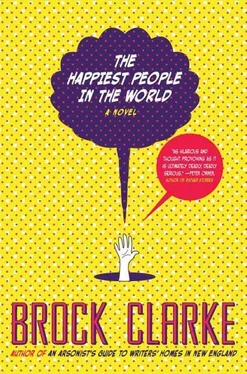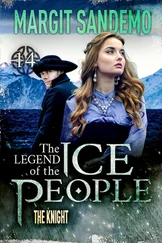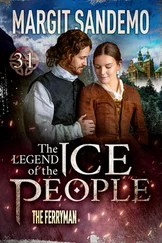Yes: the more Sheilah thought about it, the stranger it seemed, and the stranger it seemed, the more Sheilah had a sense that she’d been wronged. Fired! On a Friday night! In the bar! Nearly two months into the school year! For reasons that would have seemed obvious to anyone, but that Sheilah knew were not the obvious ones, even though she didn’t yet know what the real, less obvious reasons were. She would definitely need help finding out.
Meanwhile, Ronald had stopped to tie his shoe. Sheilah watched him. He did it with only one hand, because of his accident. Before the accident, Ronald had been an ordinary guy who tied his shoes the ordinary way. But now, look at him! Look at him do this incredible thing! Life! Rebirth! Majesty! The bald eagle was still soaring above them, too, showing them that anything was possible, even a return from near extinction, as long as you had a little help.
Ronald finished tying his shoe and stood up, and Sheilah said, “Ronald, I need help with something.” She told him the story. He listened carefully. When she was through, he nodded and said, “You’re right. Someone is missing.”
“Someone?” she said. “Don’t you mean some thing ?”
Ronald stroked his bad hand with his good. His sister was wrong about most things, but she wasn’t wrong about his hand. He really did believe in it. Some people got hurt and acted as though their injury made them better people. He was not one of those people. He got hurt and his injury gave him the power to see through the lies that other people told themselves when they got hurt. “No, I mean someone,” he said. “Someone is definitely missing.”
“The new guidance counselor?” Sheilah said.
“Obviously,” Ronald said. But he needed to see what was not obvious. This was difficult, even with his one hurt hand. Sometimes he wished that both hands were crippled. But then how would he drive? “But there’s someone else.”
“Who?”
“I don’t know,” Ronald said. “Maybe the new guidance counselor can tell us.”
It was Sunday night at the stone house. They were all there: Matty, Ellen, Kurt, plus Matty’s older brother, Lawrence, who was definitely not Larry. Matty and Ellen were in one part of the kitchen, making drinks. Meanwhile, in another part of the kitchen (it was one of those ancient stone houses upstate that had been kept as close as possible to its original colonial condition except for the kitchen, which had been added onto and added onto until it began to resemble a house in miniature, with its own entrance and mudroom and bathroom and TV nook and sitting area and of course the woodstove, which in the fall and winter and spring was always vibrating with heat and the absolute center of everything and in the summer was covered in a shroud like the religious object it basically was), Kurt sat on the couch and watched football on TV, while his uncle Lawrence sat in an adjacent easy chair, reading the newspaper. Lawrence taught eleventh- and twelfth-grade history at the school, but mostly he thought of himself as something of a world traveler, and he found inventive ways to remind people of that fact. For instance, there was a town just to the north of Broomeville called Turin, and Lawrence was the person who had to call it Torino. In any case, Lawrence was reading the paper, making those clucking sounds designed only to make the person sitting with you finally ask, What? But Kurt refused to ask it. He was busy feeling melancholy. Watching football on Sunday made him feel this way. It wasn’t that he cared so much for the game itself. It was just that on the other side of the game was Monday and school. It made him sad to the point of wanting to hurt someone. Exactly like a football player, come to think of it.
Anyway, his uncle Lawrence was clucking and Kurt was ignoring him.
“Syria!” Lawrence finally blurted out.
“What does that mean?”
“Fifteen people were killed in Syria!” Lawrence said. He sighed, dramatically, through his mouth and nose. Even his pores seemed to be exhaling. “Have I ever told you about my time in Amman, Jordan?” he said. “It was the summer, 1983. Oh, I’ll never forget the kubbeh nayyeh I had there. Some people in this country call it kibbeh but that is incorrect.” Lawrence looked at his nephew warningly: Do not be the kind of person in this country who mispronounces this word in this way, his look seemed to want to communicate. Kurt was still watching football and trying not to pay attention. But he thought: He’s talked about the food. Now he’ll talk about the people, how generous they are, especially the one who took him into his home. “And the people!” Lawrence said. “Such amazingly generous people! Ibrahim, for instance, the bead artisan I befriended in the market who took me into his home!” Lawrence had been taken by so many generous strange men into their homes that Kurt sincerely wondered whether his uncle was gay. He’d asked his father about this once: “Is Uncle Lawrence gay?” His father had thought about it for a long time before admitting, “I don’t know what he is.”
“Amman is so close to Damascus, too!” Lawrence was saying. “I was dying to go. I would have given a body part to go to Damascus. A vital organ, even. But of course, the political situation made that impossible.” He sighed again, transparently thinking now about the political situation. Kurt continued to watch TV, although it was halftime, which meant he was even closer to Monday morning. Halftime! Kurt was so full of sadness he could sort of feel it around his eyes, like it was a sinus thing. If his uncle didn’t stop talking, Kurt thought he might stick one of their heads into the woodstove. That would at least spare both of them the agony of Lawrence being Kurt’s teacher in a couple of years. “Fifteen more people were killed in Syria,” Lawrence said again, flapping the newspaper. “It drives me crazy!”
“What does?” Ellen asked. She had her glass of white wine, and she handed Lawrence a glass of raki, several bottles of which Lawrence had brought back from his tour of the Bosporus. To Kurt it smelled like sweet kerosene. It tasted that way, too. Kurt knew this because his uncle sometimes sneaked Kurt sips of it when he thought no one was looking. The stuff was awful, then it was terrible, and then it wasn’t so bad, until finally, when you got used to it, you could pretend it was pretty good.
The room was full now, everyone with their drinks: Lawrence and his raki; Ellen and her white wine; Matty and his martini, which was really a vodkatini; Kurt and his Coke, into which Lawrence clandestinely poured a little of his raki.
“What drives you crazy?” Ellen asked Lawrence.
Lawrence didn’t answer right away. He sipped his drink and then smacked his lips while regarding the contents of the glass as though actually having deep thoughts about what was in there. Kurt mimicked all this — the lip smacking, the regarding — without realizing it. When he did realize what he was doing, he was horrified. Am I turning into my uncle? he wondered. Was there a worse person in this room to turn into? Was that a rhetorical question?
“The recent massacre in Syria,” Lawrence said, and then he described it. The government had killed a group of its citizens who wanted a new government. The citizens had been raped and beheaded. Their bodies had been burned and dumped into a pit. Everyone in Syria was horrified and outraged, including the government, which insisted that it had had nothing to do with the massacre. The citizens had done it to themselves. And seen a certain way — the government’s — that was pretty much the case.
“Let them kill each other,” Matty said. He was like a lot of off-duty educators: after years of pushing cultural enlightenment on his students, he allowed himself to turn nasty on occasion, especially if the occasion included his consumption of a martini.
Читать дальше












